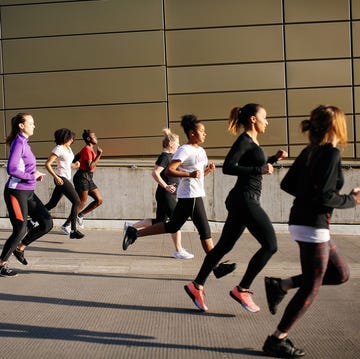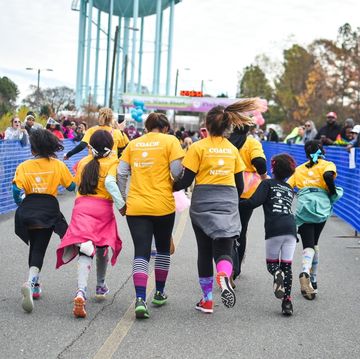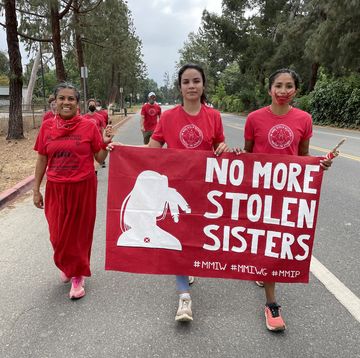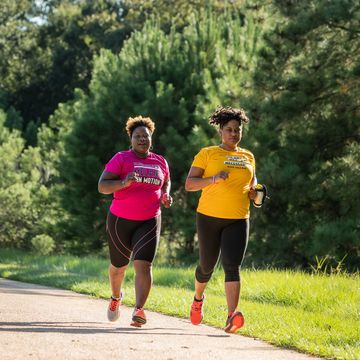More than half of our readers are women Runner’s World DAA Industry Opt Out Zelle, the female-focused channel on RunnersWorld.com.
Much of the staff attended this meeting. The subject of catcalling and midrun harassment came up. The women in the meeting shared their stories—of being honked at, shouted at, followed by strange men in cars.
One male colleague practically had to pick his jaw up off the floor. “This has happened…to ALL of you?” he said.
CA Notice at Collection Midrun harassment isnt rare. Women know that, and men should, too in the span of nine days. Predictably, some commenters have said the women should not have been running alone. Also predictably, at least one outlet—the New York Post—has felt the need to comment on the victims’ appearances, using gendered adjectives such as “pretty” and “beautiful.”
The reaction these deaths have generated—within and outside the running community—raises a few points that feel somehow connected:
You can run, but you can’t escape sexism. Women’s running has come a long way from the days of doctors saying, “You can’t do that; your uterus will fall out of your body.” Women now make up 57 percent of race finishers annually, per the This Self-Defense Tool Is Already in Your Pocket. A Part of Hearst Digital Media.
And yet people still suggest that women simply shouldn’t run alone. I once took a self-defense class for women at a local martial arts academy. The (male) instructor spent approximately half the class stressing the importance of one simple safety rule: Women should never do anything or go anywhere alone.
If you think women don’t know that it’s safer to run with other people than to run alone, think again. Every kid grew up using the buddy system. Everyone has heard the trope, “There’s safety in numbers.”
But suggesting that a woman coordinate a group for every single run she does is ridiculous, especially when you’d never give such advice to a man. Some women—just like some men—simply enjoy running alone.
You can take your generic “safety tips” and shove ’em. Posting a service-based “how to stay safe” story tied to these killings is completely inappropriate. You’re implying that the victims were somehow at fault for their fates.
Women know “what to do to stay safe.” The best practices of being aware of your surroundings, trusting your gut instincts, and staying within shouting distance of people who might be able to help in case of emergency are instilled in women from an early age, and they’re not just useful while running.
If you are unfortunate enough to encounter someone who is stronger than you and intent on harming you, you can follow every safety tip in the book and it may not make a lick of difference.
Cases like these are so high-profile because they’re so rare. On most days in many places, you can throw every safety tip out the window and still escape your run unscathed. While these recent cases are tragic, terrifying, and impossible not to empathize with, the fear they seem to be generating feels out of proportion to the actual threat.
Midrun harassment isn’t rare. Women know that, and men should, too. As the opening anecdote demonstrates, the likelihood of female runners being harassed, even in “safe” areas, is relatively high. Some men, like my colleague, might find that shocking. Others—the ones who are doing the harassing included—might consider it no big deal, or even complimentary.
I’m already doing everything I’m willing and able to do to stay safe on a run—forgoing headphones, avoiding certain routes, exploring others only when I’m with a group. But that hasn’t stopped men from honking at me, catcalling me, or following me in their cars. And if those men are disrespectful enough to honk, catcall, or follow, how am I to know that they won’t grab, rape, or kill?
That’s a huge leap, I know, and the risk of physical harm is very low, especially in the neighborhoods where I usually run. But if you feel you have the right to interrupt my run with “a friendly honk” or a comment about my appearance, what other rights do you think you have in your interactions with women?
Men, I want you to think about this. I want you to care about this. I want you to be outraged that the women you run with, when they’re running alone or even with other women, are angry but not surprised when men whistle or honk or make lewd comments. Awareness and understanding from our male counterparts is more likely to improve the reality of being a woman who runs than a whole browser full of hackneyed “safety tips” ever will.













